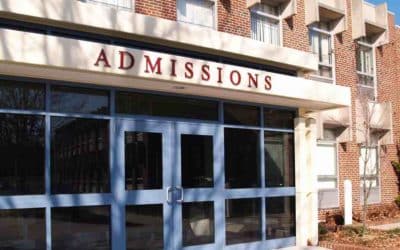The high school courses you take and the grades you get on them are the most important part of your applications to colleges. That means that choosing courses wisely is critical for high school students as they prepare for college applications. As Jeff Rickey, former Dean of Admissions at St. Lawrence University, put it, “A student’s transcript is very significant … it shows the two most important elements that determine whether a student is academically eligible for the college to which he or she is applying: the level of rigor in the school’s curriculum and the student’s performance within the context of that curriculum.”
But it can be tough to choose high school courses effectively. Students and parents trying to make the choice face a number of complex questions:
- How many AP, Honors, or IB courses should a student take?
- Should a student take an advanced (AP, Honors, or IB) course or the equivalent college-prep course? (sometimes put this way: “Is a B in AP Calculus better than an A in Calculus?”)
- How about courses at community colleges or online universities?
- How many advanced courses to take each year?
- Which electives to take?
There are no universally correct answers to these questions, so here are some tips to help you make the choice.
Create Balance
Colleges want to see you took a challenging course load in high school. That means that when an advanced alternative (like an AP or Honors course) is available, you took that course instead of the easier alternative. This is because the advanced course indicates the ability to handle a college-level curriculum. If you’re considering applying to very selective universities, like Ivy League schools, you need to take 7-12 advanced courses during your high school years. But for less selective universities, you may only need 4 or 5 advanced courses on your transcript to get in.
But if you’re taking 3-5 advanced courses at one time, you’ll have very little time for socializing, extra-curricular activities, or even sleep. It can get overwhelming, and students do in fact burn out. So take a deep breath and set realistic goals. If academics is really interesting and you’re very ambitious, go ahead and take the heavy course load. But if not, remember there’s a great university for nearly every student who wants to attend and create a plan you can live with.
Pursue Your Interests
One student recently asked, “Should I take AP World History or AP Chemistry next year?” It’s a great question. In this case, taking both would have created a very heavy course load for a sophomore. There’s not a universal answer to this question. AP European History requires a lot of reading and writing, great reading comprehension and recollection, and advanced writing skills. AP Chemistry is a wide-ranging course covering physical, inorganic, and organic chemistry. The best advice is to take the one you’d excel at. If you’re interested in science, medicine, or engineering, take AP Chemistry. So take an interests test, and figure out what your aptitude might be. It will help you decide.
Have a Strategy
For students (or parents) considering very selective schools, it’s important to start the process as early as possible, so you can spread out the challenge of advanced courses over the four years of high school. That’s because, in addition to the number of advanced courses, colleges also consider the trajectory of your grades. Seeing a transcript where the grades get better over the years is much better than the opposite. So if you take one AP or Honors course in freshman year to get used to the work, you can slowly build up, and not get overwhelmed. For students who aren’t as eager to apply to very selective universities, you can wait to start until sophomore year.
One question parents ask often is “Is a B in AP Calculus better than an A in Calculus?” Again, there’s no universal answer to this question. In general, if you’re applying to study engineering or math or physics, taking and doing well in AP Calculus is very important. Likewise, if the question were about AP US History and you’re applying to a top liberal arts school, getting an A on that course is important. Otherwise, ask yourself why you’re taking AP Calculus or AP History if you’re not sure you can do well at it. Consider an AP course you’re interested enough in to do well at. Maybe you can take AP Statistics instead of AP Calculus. Or Honors Psychology instead of Honors World History.
Choose Electives to Explore
During junior and senior years, students get the opportunity to select electives. This is a great way to explore potential careers or college majors. If you’re considering a career in computer science or psychology, take a computer science or psychology elective. If your high school doesn’t offer an elective you like, ask your school’s counseling department if you can take a course at a local community college or an online high school like BYU’s online high school.
Get Expert Help
Choosing high school courses is critically important, so make sure to sit down with an expert and discuss your choices. If your high school counselor has the time, make an appointment and talk it through with them. If not, get professional help or work with a college access program that can enable you to make this decision correctly.







I had no idea that taking AP classes prove that you can handle college-level courses. My son values his education above almost anything else, it is important to him that he uses his time in high school as an opportunity to get into the university that his friends are planning on attending. Maybe it would be best for him to attend a college prep school to help him stay on track.
Thanks for informing me that if a high schooler is interested in getting into an ivy league school, they should take 7-12 advanced courses. My daughter, who’s graduating middle school soon, dreams of getting into Yale, so I’ll share this with her. I’ll also talk to my husband later about starting to look for a reputable college preparatory school in the city. Thanks!